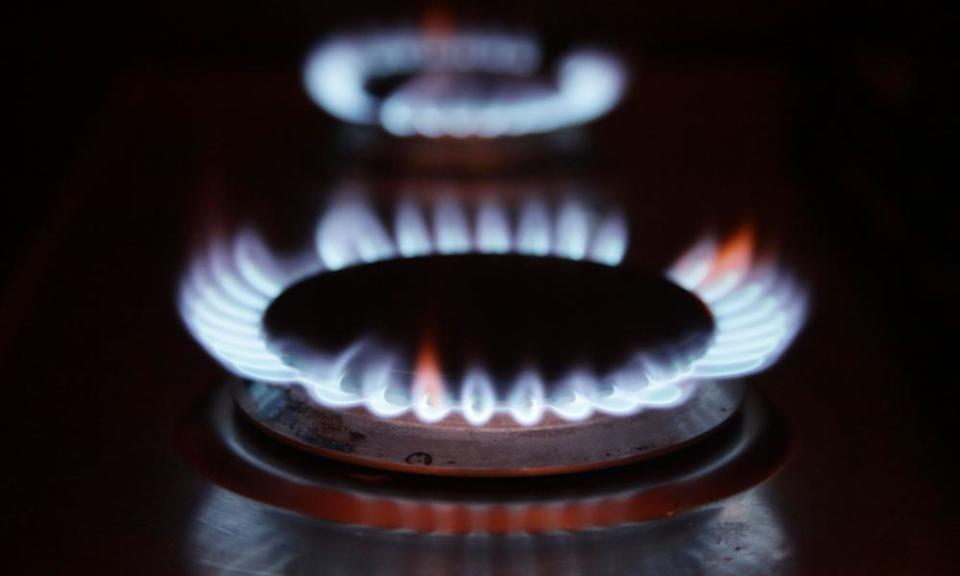Tory energy bill cap dents Centrica and SSE share prices

Share prices for two of Britain’s biggest energy companies have fallen in the wake of the Conservative party’s pledge to cap energy bills.
Shares in British Gas owner Centrica, the UK’s largest energy supplier, fell 4.2%, while SSE shares fell 3.2%. The pair’s share prices had dipped by similar amounts after Ed Miliband promised an energy price freeze in 2013.
Ministers said on Sunday that the cap on standard variable tariffs, which more than two-thirds of households pay, would save the average family around £100 a year. SSE has more customers on standard tariffs than any of the big six energy companies, with 91% or 3.8 million, making it the most exposed to the Tory plan.
British Gas is the only one of the large suppliers to have not hiked prices in the recent flurry of tariff rises, although analysts expect the cap will dent its parent company’s earnings before by £300m.
Experts at Jefferies, the stockbroker, said that if the company offset the pain by making its fixed deals more expensive – as seems likely across the industry – it would reduce the loss to £150m. Several analysts said a price cap could hit the ability of Centrica to pay a dividend to shareholders.
The bank Berenberg calculated that a £100 annual cut for the 17m households on standard variable tariffs would cost energy suppliers at least £1.7bn a year, with the big six bearing the brunt of the losses.
Iain Conn, Centrica’s chief executive, reacted to the the Tory campaign pledge by arguing it would hinder rather than help consumers. “Price regulation will result in reduced competition and choice, stifle innovation and potentially impact customer service,” he said.
ScottishPower criticised the policy and called for standard variable tariffs to be abolished and replaced with something more akin to an insurance product, fixed for a certain period of time after which it would need to be renewed. The company said a cap would stop competition.
A spokesman for SSE said: “while we will work with an open mind with government on any reforms, we would always caution about the potential unintended consequences of any intervention in what is a rapidly changing and increasingly competitive market.”
The Tory policy goes against the advice of the competition watchdog, Ofgem, which concluded in a review last year that a cap would: “run excessive risks of undermining the competitive process, likely resulting in worse outcomes for customers in the long run”.
But the founder of one of the market’s smaller suppliers said the big players had only themselves to blame, by overcharging loyal customers.
“We hear the big six bleating that they barely make a profit. That’s not because their prices are competitive, it’s because they’re bloated and inefficient – and their customers pay the price,” said Greg Jackson of Octopus Energy.
Miliband joked on Sunday that the interventionist stance taken by the Conservatives would prompt criticism from newspapers that had attacked his pledge four years ago.
Tories in for kicking from Sun and Mail tomorrow for energy policy.Just wait: Marxist madness, anti-business, back to 70s...
— Ed Miliband (@Ed_Miliband) April 23, 2017

 Yahoo Finance
Yahoo Finance 